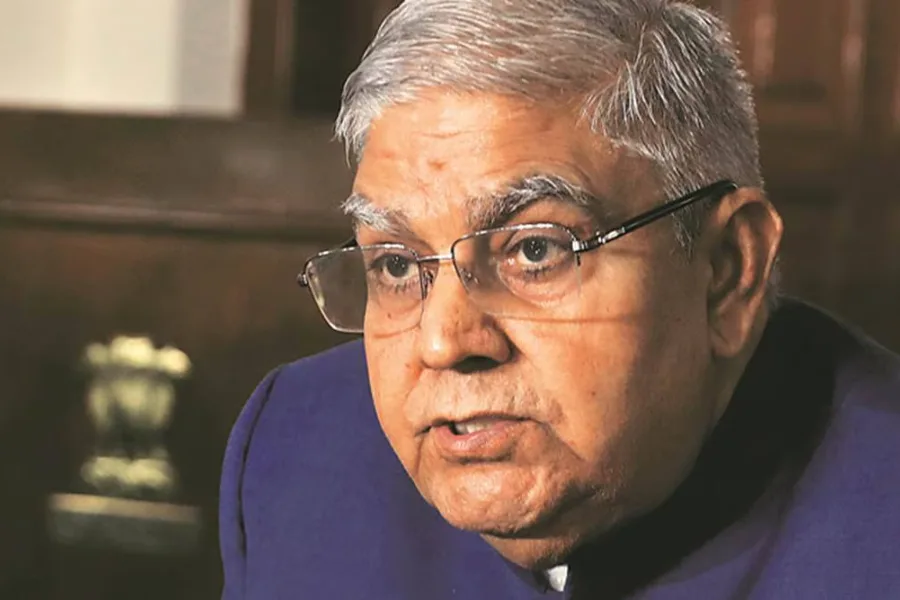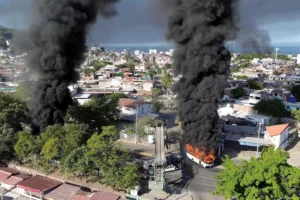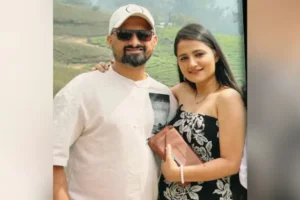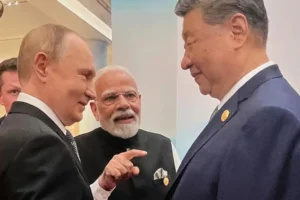
In a recent speech, Vice-President Jagdeep Dhankhar has re-ignited the continuing debate. It was on the role of the judiciary in determining constitutional amendments. Also reiterating his apprehensions pertaining to the Supreme Court’s judgement to nullify the National Judicial Appointments Commission (NJAC) Act. During the 8th Dr LM Singhvi Memorial Lecture, Dhankhar expressed extreme concern. This was about what he termed the “reversal” of a constitutional amendment that was endorsed by nearly the whole of Parliament.
Background: NJAC versus Basic Structure
Parliament adopted the NJAC Act in 2014 to replace the Collegium system for judicial appointments with a committee. It included members from the judiciary, the executive and civil society. The Supreme Court on the other hand ruled against the NJAC Act in 2015. It was on the grounds that it breached the doctrine of the basic structure of the Constitution. Therefore violated the Independence of the Judiciary.
Since then, the discussion of NJAC has emerged as a focal point in the larger tussle between the judiciary and the executive on appointments to the higher judiciary.
Dhankhar’s Ongoing Critique
Dhankhar entered the role of Rajya Sabha Chairman in December 2022. He has previously condemned the Supreme Court’s 2015 ruling. In his latest comments, he went further and asked openly if the courts could reverse a constitutional amendment -supported almost unanimously by both Houses.
During the period of 2015-16, the entire Lok Sabha voted unanimously in favor. There was no abstention, or disagreement. In the Rajya Sabha, there was just one abstention. “This change reflected the wishes of the people’s,” Dhankhar said. “I challenge the judicial fraternity and intellectuals. Find me an example anywhere in the world where the reverse may happen of any constitutional provision which was carried unanimously.”
The Vice-President expressed concerns about recent controversies affecting the judiciary. It included but were not limited to the April 2024 incident where large amounts of unreported cash were found in a judge’s residence connected to the High Court.
He used this example dilate on the value of accountability and transparency for the judicial appointment process.
Democratic Participation and Universal Suffrage
Also present at the same event was Chief Justice of India DY Chandrachud, who took a counter view to Dhankhar’s claims. He emphasized the importance of universal adult suffrage. It was as a basic feature of a participatory democracy and reflected on the political wisdom residents. Often unofficially recognized as uneducated.
Chief Justice Chandrachud mentioned, – “any notion that educated persons make better choices, has to be rejected”. He reinforced faith in grassroots democracy and political activism by the populace. While also iterating, in a subtle way, that judiciary should remain independent of political pressure.
An Ongoing Institutional Tension
Dhankhar’s speech reiterates the permanent clash between the executive and the judiciary about the executive branch’s management of judicial appointments. While the Vice-President has depicted his objections as a safeguard to democratic principles, opponents of the action claim that any attempts to revive the NJAC model imperil judicial independence.
The assembly of senior judges, Union ministers, and lawyers at the event lent weight. This further stated that the NJAC conversation is alive and well. One of the most argued-conversations occurring in the broader Indian constitutional conversation.
Recent Updates Indicate Growing Conversations
These recent news updates are suggesting that the gap between the legislature and judiciary is widening. As India sustains a complicated system of checks and balances, the question of who appoints judges – and how judges are appointed is important to the health of democratic system.
It yet to be determined if this public debate results in a revival of the NJAC proposal or a modification of the current Collegium system. Right now, Vice-President Dhankhar’s statements have brought the issue into the national spotlight yet again, allowing for further discussion and possibly legislative action.






eiw7ea